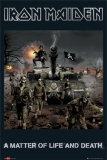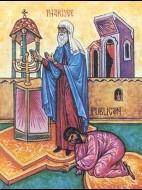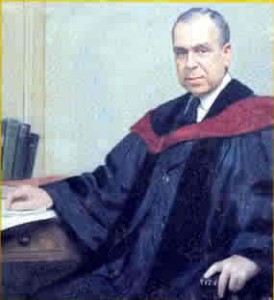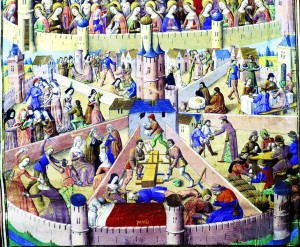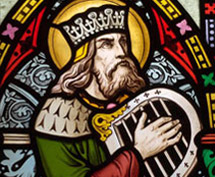 Job is clearly some kind of king. He is the leader of his community. He is the Chief Cornerstone, while Eliphaz, Bildad, and Zophar are his “three mighty men,” the other corners of the realm. It is because Job is the king that the other men arrive to try and force him to step down.
Job is clearly some kind of king. He is the leader of his community. He is the Chief Cornerstone, while Eliphaz, Bildad, and Zophar are his “three mighty men,” the other corners of the realm. It is because Job is the king that the other men arrive to try and force him to step down.
(The Hebrew word for “army commander” is “corner.” For other examples of chief corners and three other corners, consider David and his three mighty men, Daniel and his three friends, and Jesus with Peter, James, and John. On “corners” and “three mighty men,” see Biblical Horizons 121. Compare also Jesus with the Caiaphas, Herod, and Pilate, as discussed above.)
Job as king is the “greatest of the men of the east” (Job 1:3). He employed hundreds of people and fed the poor. The disaster that overcame his household was, thus, a disaster upon the entire realm. The poor were starving, and hundreds of people were either killed or out of work. The sores on Job’s body were a sign of the lesions on the body politic of which he was the head, a point no ancient reader would miss.
This realm or political “house” has fallen because the Chief Corner, Job, has fallen. The other three corners, thus, step in to try and repair it. Their fallacy is not in seeking to restore their society, but in the way they seek to do it. Their desire is for Job to step down by admitting fault, so that one of them can replace him. God’s intention, however, is to take Job and this society through judgment and resurrection, and to reconstitute a new and better society afterwards (as happens in chapter 42).
Job’s position as king or leader of his people has been skillfully analyzed by Rene Girard in Job: The Victim of His People, translated by Yvonne Freccero and published by Stanford University Press in 1987. Despite the many flaws in this book, it makes clear that the attack upon Job came not because he was an ordinary person, but because of his preeminent position in this community, which had fallen into chaos seemingly as a result of God’s judgment upon Job, their “king.”
The book of Job, then, is not just about the sufferings of a righteous man, though it is that in part, and can be preached that way. It is also about chaos in the body politic, and the position of the suffering king within that chaos.
That Job is about kingship links it with three other “wisdom” books, produced by Solomon. Job is about the suffering of the king. Ecclesiastes is about the aged wisdom of the king. Canticles is about the marriage of the king to his people. Proverbs is advice to the king’s son, that he join himself to the company of the wise (personified as Lady Wisdom in chapters 1-9 and 31), and avoid the company of the foolish (personified as Harlot Folly) – something Solomon’s son Rehoboam foolishly failed to do.
While law and obedience are associated with the Sinaitic Era, wisdom and skill are associated with the Kingdom Era. The books of Law are given through Moses, while the books of wisdom are given through Solomon. It seems very likely, then, that Solomon was the author of Job. Indeed, the 28th chapter of Job might just as well be part of Proverbs or Ecclesiastes. Thus, while we cannot know for certain, Solomon is the most likely author of Job.
via Biblical Horizons » No 130: Was Job an Edomite King? (Part 1).
I’m not going to go into details here, but if you read about David in the book(s) of Samuel, you know that he committed some serious sins as king. And these sins led to opposition and rebellion in which his kingdom was endangered.
To take one specific instance: we learn in 2 Samuel 23.34 of “Eliam the son of Ahithophel of Gilo,” Eliam was one of David’s mighty men and Ahithophel was David’s counselor who sided with his son Absalom when Absalom attempted to take his father’s throne (and, as part of that transition, kill David).
Why would Ahithophel turn against David? How about this: Bathsheba was his granddaughter (2 Samuel 11.3). Uriah the Hittite, one of David’s other mighty men, was his Son-in-law, before David got him killed and took Bathsheba for himself. This might shed light on how Ahithophel came up with the idea that Absalom should publicly take ten of David’s concubines… on the roof, where David had first spied Bathsheba.
My point in this little story is that it was no secret. And yet the congregation of Israel sang songs by David. Some acknowledged his sins (most obviously, Psalm 51). But others sounded like this:
O Lord my God, if I have done this,
if there is wrong in my hands,
if I have repaid my friend with evil
or plundered my enemy without cause,
let the enemy pursue my soul and overtake it,
and let him trample my life to the ground
and lay my glory in the dust. Selah
Arise, O Lord, in your anger;
lift yourself up against the fury of my enemies;
awake for me; you have appointed a judgment.
Let the assembly of the peoples be gathered about you;
over it return on high.
The Lord judges the peoples;
judge me, O Lord, according to my righteousness
and according to the integrity that is in me.
Oh, let the evil of the wicked come to an end,
and may you establish the righteous—
you who test the minds and hearts,
O righteous God!
My shield is with God,
who saves the upright in heart.
God is a righteous judge,
and a God who feels indignation every day.
If a man4 does not repent, God5 will whet his sword;
he has bent and readied his bow;
he has prepared for him his deadly weapons,
making his arrows fiery shafts.
Behold, the wicked man conceives evil
and is pregnant with mischief
and gives birth to lies.
He makes a pit, digging it out,
and falls into the hole that he has made.
His mischief returns upon his own head,
and on his own skull his violence descends.
Now I’m not sure what to make of all this. Job seems the opposite of David in that everyone knew that David could not claim to have never sinned in these ways. (Is this Psalm only allowable because it was written before Bathsheba? Or is there also a reminder of David’s own exile and the losing of the son he loved? It is interesting that the first Psalm attributed to David (Psalm 3) is explicitly about Absalom.) But certainly many took his troubles and his fleeing from Jerusalem as a sign that God was finally condemning him for his sins and removing him from his office.
But they were wrong. God vindicated David in the end, just as Job was vindicated against his “friends.”
There has to be something to that. I just am not sure how to work it out.
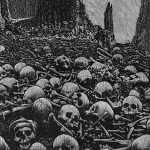 Ezekiel’s vision of the valley of dry bones is one of the better known passages in that book. It is found in the first half of chapter 37. God raises the dead to new life.
Ezekiel’s vision of the valley of dry bones is one of the better known passages in that book. It is found in the first half of chapter 37. God raises the dead to new life.